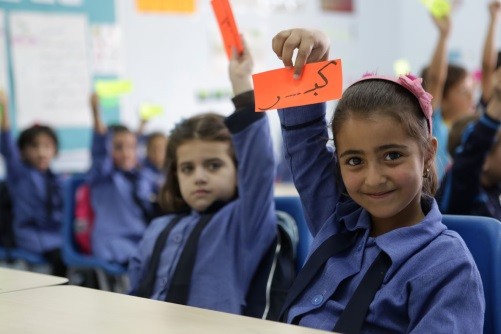Background

USAID’s Global Education Strategy aims to improve reading skills for 100 million children in primary grades. In support of this, USAID funded a National Early Grade Reading Assessment (EGRA) in 2012 and found that the majority of Grade 2 students in Jordan are not reading with fluency and lack the foundational literacy skills normally taught in first grade. USAID simultaneously funded an Early Grade Math Assessment (EGMA) and found that memorization plays a large role in how Grade 2 students learn mathematics in Jordan. This leads to a deficit in the conceptual knowledge needed to perform more advanced math. Concern over the 2012 EGRA/EGMA results has contributed to Jordan’s Ministry of Education’s (MOE) interest in rolling out a large-scale early grade reading and math intervention. The MOE recognizes the need to improve the quality of learning in the early grades to provide students with the fundamental skills they need to advance.
Project overview
The main goal of RAMP is to support the efforts of USAID Jordan and the MOE in instituting reading and mathematics teaching and learning methodologies, policy and practices within schools, communities and government entities that focus on improving learning outcomes for reading in Arabic and math in grades K2-G3. for all public schools in Jordan. RAMP objectives include:
- Improving early grade reading and math learning materials
- Better preparing teachers and administrators to provide effective reading and mathematics instruction through in‐service, induction and pre-service training, mentoring and supervision
- Engaging communities for participation in the education of all children and holding schools accountable for results
- Supporting the Government of Jordan’s efforts to institutionalize early grade reading and math policies, standards and assessments
RAMP will benefit public school students, parents, teachers, mentors, counselors, supervisors, principals and communities in addition to field directorate and central MOE and Ministry of Higher Education staff. Disabled students and those needing remedial education will also benefit from more inclusion and tailored learning elements of RAMP. Public schools will directly benefit from curriculum improvements at the school and university level, pre-service training, and the revised policies, standards, and assessments while private schools will indirectly benefit from this. Outside of the school system, parents and community members will become stronger advocates for children’s education with tools and practices to help children succeed.







Comment
Make a general inquiry or suggest an improvement.